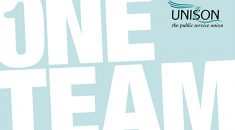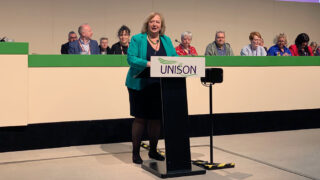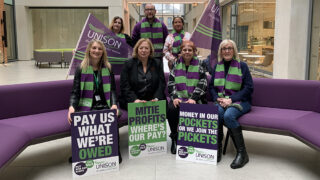Four months ago I was diagnosed with breast cancer. Since then, I’ve had biopsies, a mastectomy, lymph node removals, countless scans and blood tests, an imminent death scare and two rounds of chemotherapy.
Today, I’ll be having my third round and by rights I should be feeling terrified. Chemo’s pretty toxic – my oncologist told me semi-jokingly that the aim is to get as close to killing me as possible. But I don’t feel scared – I’m feeling calm and secure.
This is because, thanks to the NHS team at south London’s St George’s hospital, a trip to the chemo ward feels as close to a trip to a day-spa as you can get (given the cancer, hard core drugs and slight whisper of death involved).
We’re greeted by receptionist Sorada. She’s lovely, and always remembers to book me in for my follow-up appointment as I prepare to wander out after my treatment with no thought for the next one. Finally I’ve got an official excuse for my general forgetfulness: it’s called chemo brain.
She shows us to the waiting room where Ahmed, a volunteer who’s been here for each of our treatments, offers us tea, coffee, water and biscuits. As the treatment progresses he’ll bring us sandwiches, fruit and cake, before offering more coffee. It’s a five-star service and the warmth of the welcome inspires camaraderie among waiting patients who want to talk and quiet relaxation for those who don’t.
A nurse called Charlotte brings us through to the chemo room. There’s a remote-controlled reclining seat for me and a comfortable armchair for my mum. We sit in the window seats as watery winter sun makes its way through the large windows. The lorazepam I was advised to take before the appointment gives me a pleasantly relaxed feeling and I settle in for my treatment.
Usually Grace gives me my injections. I think she runs the ward and she’s been here 13 years. As well as reading academic papers to keep up with changes in treatment, she observes, talks and listens to her own patients.
On my first visit I tried the cold cap: a large rubber hat that freezes to your head to prevent hair loss. It has a 30% success rate and didn’t work for me but Grace tells me she’s observed patients who wear it for the rest of their treatments can get hair regrowth about twice as quickly as usual.
You can pay thousands of pounds for body-freezing beauty treatments in luxury hotels so, although I now have no hair, I’ve joined Jennifer Aniston, Jessica Alba and Daniel Craig in having skin that is naturally detoxed with reduced wrinkles and stimulated lymphatic drainage (on my head anyway).
Next for the massage, self-administered. As I wait for the pre-treatment pills Charlotte has brought me to kick in I apply strong massage to my left arm. The strength of the chemo drugs has given me tracking – tightened veins often suffered by heroin users. My oncologist has told me to apply all my spare moments to arm massage, so here I go, rubbing my arm as much as possible to relax my veins.
Another cup of tea, some iced water, and Charlotte comes to hook me up to my drip. While not quite the health drips featured in Tatler and Vogue and patronised by the likes of Cara Delevigne, Rita Ora and Rihanna, it does aim to stop me from dying, so I’m happy.
Although the team are busy, with up to 60 patients a day each having treatment for two to three hours, and each needing careful medication and skilled drug administration, the atmosphere is calm and kind.
An older gentleman with a bad sounding cough is monitored and tested for any bacterial infections. Chemo makes it easier to pick up bugs which are then harder to get rid of, so the team are careful and attentive to all their patients.
A woman, attended by her son, gives me a friendly nod. She doesn’t speak much English but her son explains she wants to tell me it’s her last treatment, she’d been worried at first but it hasn’t been too bad.
“Aren’t they nice here?” I ask and her son translates. She nods with a big smile. “They’re very good,” he replies.
Charlotte comes to unhook me at 2pm, I’m all done and ready to go home. She started at 8.30am and will be here till 6.30pm.
There’s not much that’s fun about cancer, but the people who work in this ward and throughout the hospital: from the sonographer who found my lump, to the pre-treatment nurse (one heroic woman doing the job of three as they struggle to recruit), the surgeon, oncologist, blood-takers, drug administrators and back office workers I don’t see but who make it all possible, manage to do something wonderful.
They make the moment that you are injected with substances that are going to make you feel pretty grim for the next week or so a high point of the process. They do this through professionalism, competence and kindness: skills we see in public service every day and that don’t get anything like enough recompense, respect or thanks.
So, although I can’t give public service workers a pay rise, recruit more much-needed staff to make their working days less stressful, or stop the media slamming that they often get, I can say a big ‘thank you’ from one chemo patient, hoping to live to a ripe old age thanks to their work.




